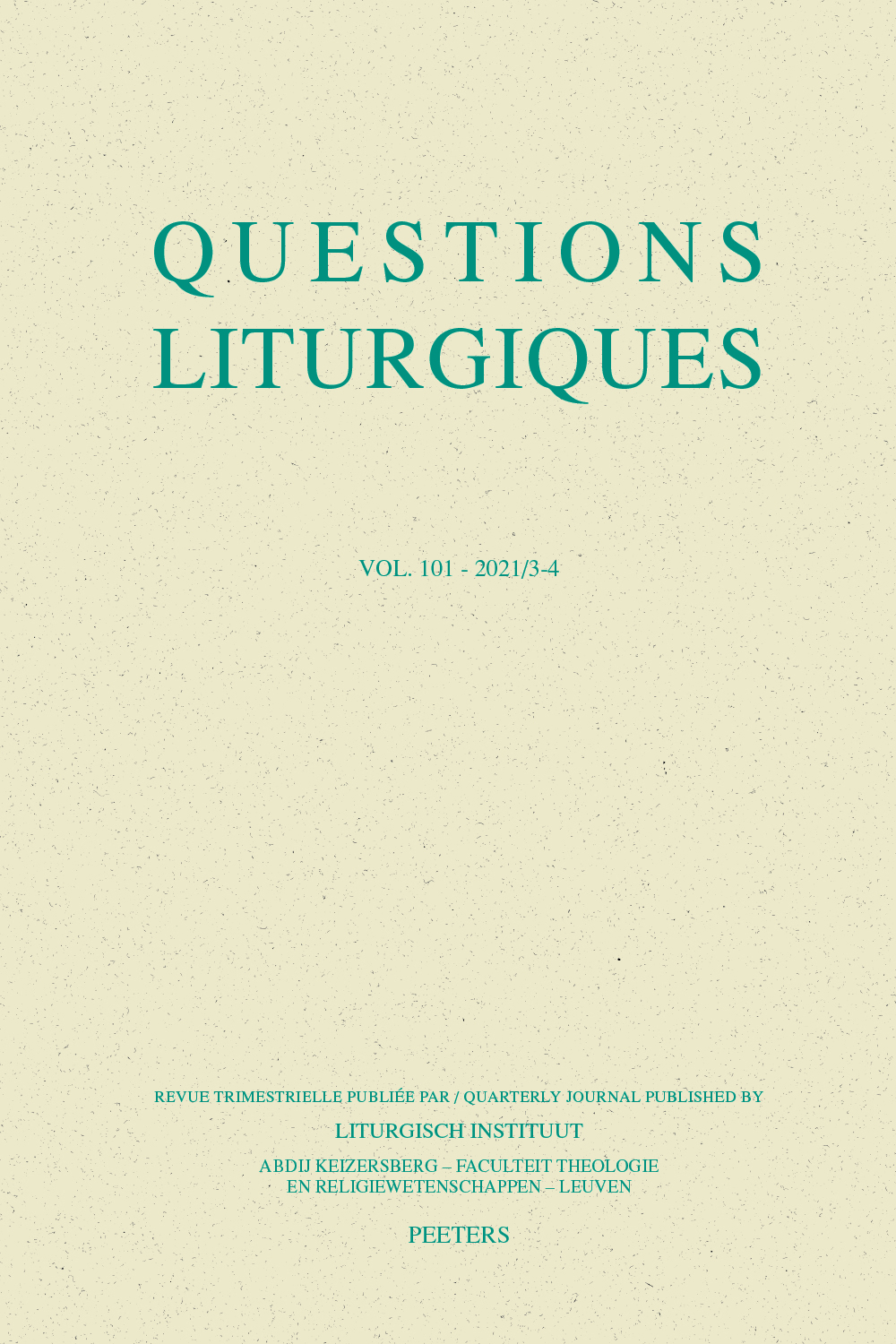 previous article in this issue previous article in this issue | next article in this issue  |

Preview first page |
Document Details : Title: Glimmers of Sacramentality in Early Colonial Australia Author(s): DOUGLAS, Brian , LOVAT, Terence Journal: Questions Liturgiques/Studies in Liturgy Volume: 102 Issue: 3-4 Date: 2022 Pages: 249-266 DOI: 10.2143/QL.102.3.3291362 Abstract : Sacramentality plays an important role in Christian theology, arguing that objects and sacramental means mediate divine grace. This article argues that despite the prevailing evangelical thinking amongst the first Christian clergy in early colonial Australia, there were nonetheless some glimmers of sacramentality apparent. The first Anglican Eucharist celebrated in Australia suggests that for at least one of the participants, material objects were of great spiritual significance even though the religious practices of the Church of England that came with the First Fleet was substantially that of evangelicalism. The deficit theology of evangelicalism is explored in the work of the first Church of England Chaplain, the Rev’d Richard Johnson, with some comparison to the abundance of the divine in the creation and in the spirituality of local Aboriginal people. The realisations of one young white marine officer, William Dawes, suggest that he caught a glimmer of sacramentality as he interacted with this strange land and its native people. The enchantment of sacramentality is counterposed with the more recent thinking of Otto and Husserl as a lens to examine the place of the holy in early colonial Australia, especially in Dawes’ relationship with a young Aboriginal woman, Patyegarang, and other Aboriginal people. Dawes’s Notebooks give tantalising glimmers of sacramentality in early colonial Australia related to the presence of the divine in creation and in relationships. The article speculatively points to the secret of the eternal in the enchantment of sacramentality, hinted at by Dawes in his Notebooks and his relationship with his Aboriginal friend Patyegarang. The interaction of white people and Aboriginal are highlighted as an example of intercultural relations in early colonial Australia with implications for the enchantment of sacramentality. La sacramentalité joue un rôle important dans la théologie chrétienne, soutenant que les objets et les moyens sacramentels servent de médiateurs à la grâce divine. Cet article soutient que, malgré la pensée évangélique dominante parmi le premier clergé chrétien de l’Australie coloniale, il y avait néanmoins quelques lueurs de sacramentalité apparentes. La première eucharistie anglicane célébrée en Australie suggère que pour au moins l’un des participants, les objets matériels avaient une grande signification spirituelle, même si les pratiques religieuses de l’Église d’Angleterre qui a accompagné la ‘First Fleet’ étaient essentiellement celles de l’évangélisme. La théologie déficitaire de l’évangélisme est explorée dans le travail du premier aumônier de l’Église d’Angleterre, le révérend Richard Johnson, avec une certaine comparaison avec l’abondance du divin dans la création et dans la spiritualité des peuples Aborigènes locaux. Les observations d’un jeune officier de marine blanc, William Dawes, suggèrent qu’il a perçu une lueur de sacramentalité dans son interaction avec cette terre étrange et ses autochtones. L’enchantement de la sacramentalité est confronté à la pensée plus récente d’Otto et de Husserl pour examiner la place du sacré au début de l’Australie coloniale, en particulier dans la relation de Dawes avec une jeune femme aborigène, Patyegarang, et d’autres Aborigènes. Les carnets de Dawes donnent des lueurs alléchantes de sacramentalité au début de l’Australie coloniale, liées à la présence du divin dans la création et dans les relations. L’article indique de manière spéculative le secret de l’éternel dans l’enchantement de la sacramentalité, auquel Dawes fait allusion dans ses carnets et dans sa relation avec son ami aborigène Patyegarang. L’interaction entre les Blancs et les Aborigènes est présentée comme un exemple de relations interculturelles au début de l’Australie coloniale, avec des implications pour l’enchantement de la sacramentalité. |
|


